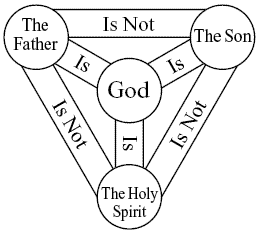Should a Christian swear to tell the truth in court?
I found some notes in my files that helped me answer this question.
I don’t know who to give the credit to, but I’m glad I came across it when I did. I have heard many Christians question whether or not they are to “swear” or “affirm” when giving their promise in a court of law to tell the truth. The basis for the question is found in Matthew 5:33-37.
244 times in 192 verses the King James Bible uses the words “swear”, “vow” or “oath.” In fact, the rightful taking of an oath is an act of worship. Before we go to the text we must be reminded that Jesus was correcting the false views of the religious leaders of His day. Phrases Jesus used like, “ye have heard that it hath been said by them of old time,” are dead give-aways. Especially the “by them” part. God was disassociating Himself from their false doctrine big time.
The command to “swear not at all” originates with the third of the Ten Commandments (Exodus 20:7). If “swear not at all” is to be taken literally and without other considerations, then it contradicts Deuteronomy 6:13, “Thou shalt fear the Lord thy God, and serve him, and shalt swear by his name.” Because Bible believers know that is impossible, there must be another explanation (2 Timothy 2:15). And there is.
The character of a man who is fitted to abide in the Tabernacle of the Lord is described in Psalm 15:4 as one who “…sweareth to his own hurt, and changeth not” (cf. v.1). Some of the many other verses that allow “swearing” and oaths are Exodus 22:11-12; Leviticus 5:1; 19:12; Numbers 5:19-21.
The Pharisees had drawn a wrong conclusion that there was no evil in breaking your word as long as you hadn’t “sworn.” Sort of like having your fingers crossed behind your back today. They even had a hierarchy of oaths. Had they sworn by the Temple itself or by the gold of the Temple? Had they sworn by the altar or by the sacrifice on the altar? (Matt 23:16-19) All of this foolishness came into play as they were being taken to court for not keeping their word!
“Swearing,” instead of the act of worship God intended it to be, had became a part of their daily vocabulary. Your word should be binding. Yes should mean yes. No should mean no. Even to the point of “swearing to your own hurt and changing not.”
The Hebrew word for oath is ‘shebuah.’ The word is used only in a passive tense, which means that the act of swearing is not to be self-initiated. We should swear only when called upon to do so. Swearing is an act of worship as it, 1) confesses the presence of an omnipotent God; 2) calls upon that God to bear witness to what we are saying; and 3) is a request by the one swearing for God to personally revenge all lies.
Within the confines of what we have read, it is certainly appropriate for a Christian to “swear” that what he or she is saying is the truth when called upon by a court or other authority to do so.










